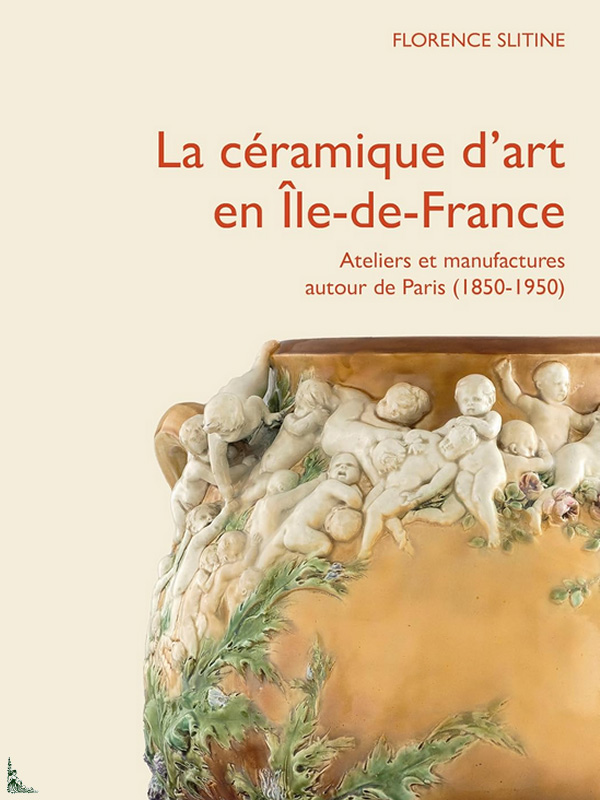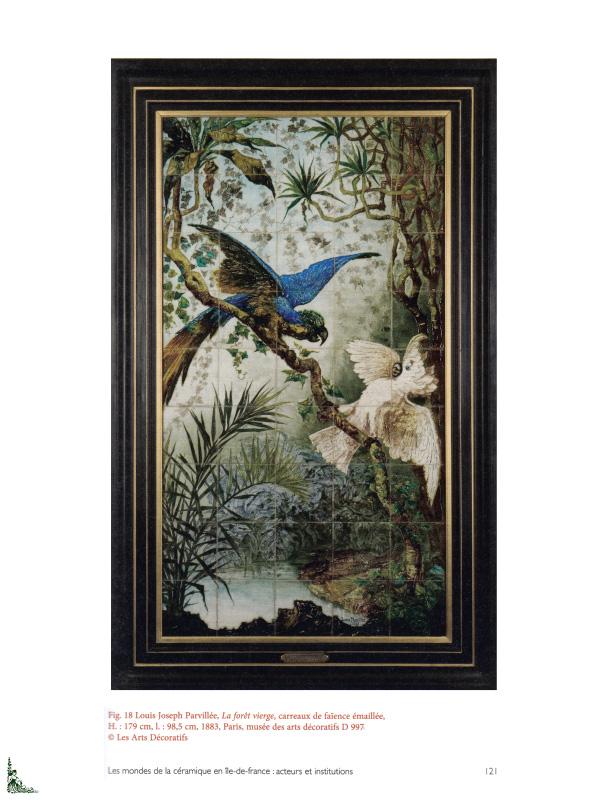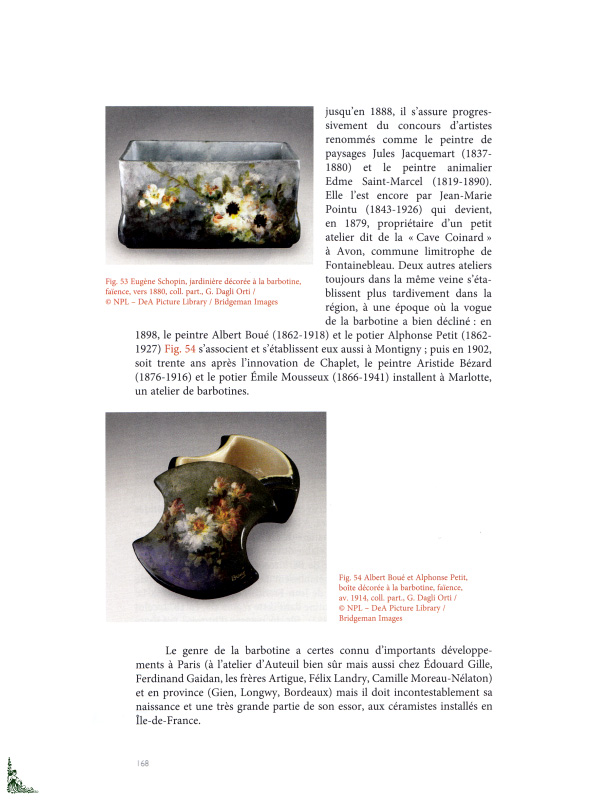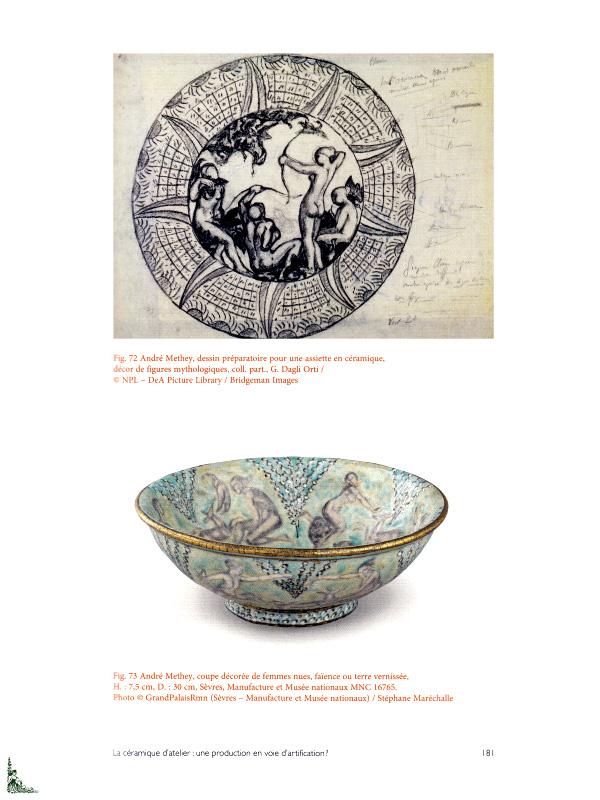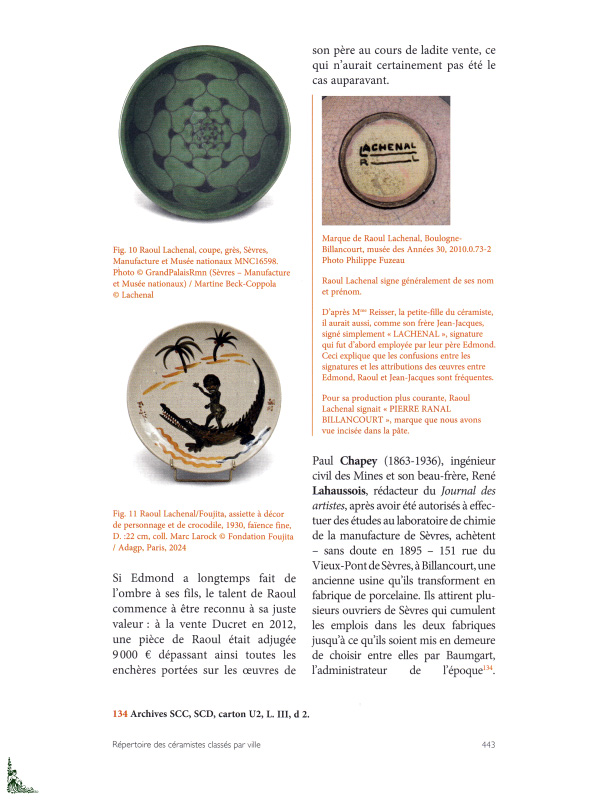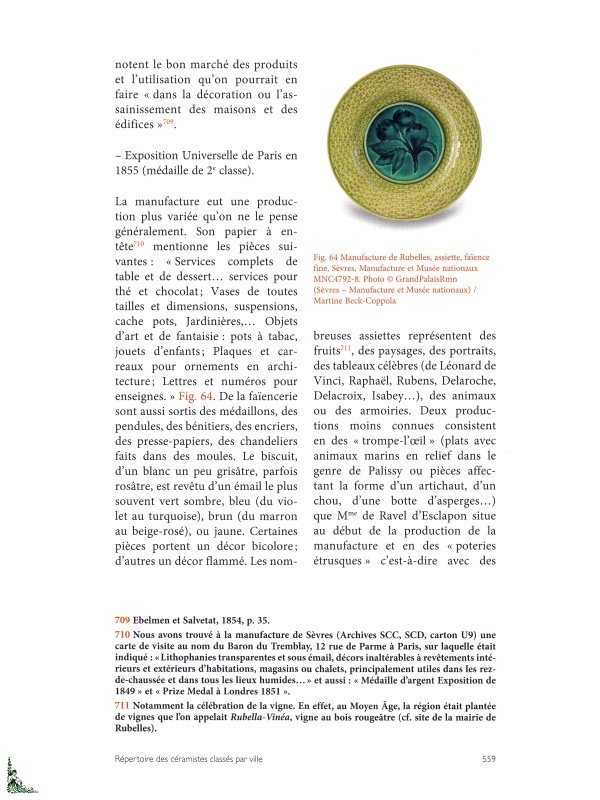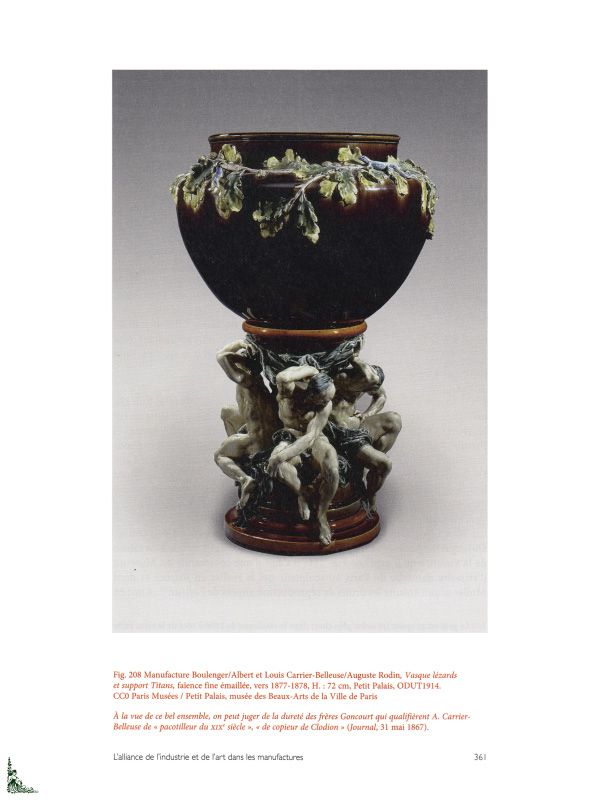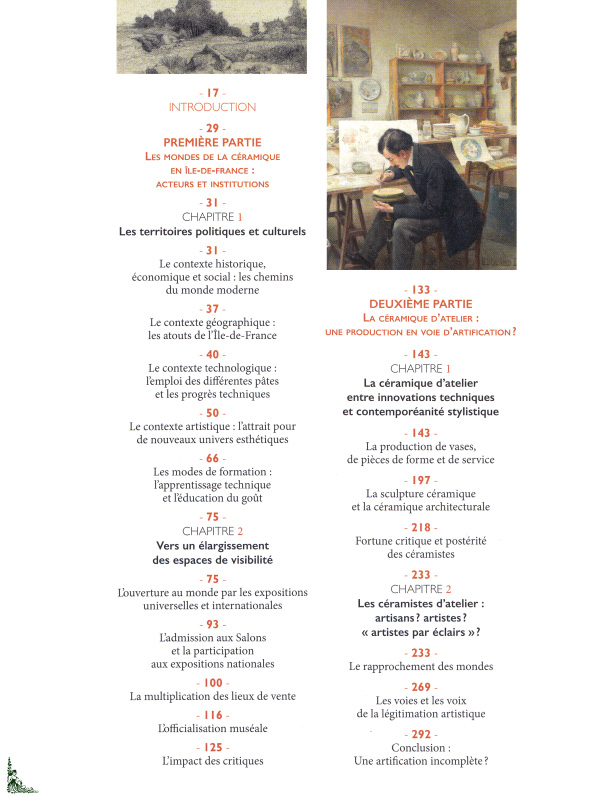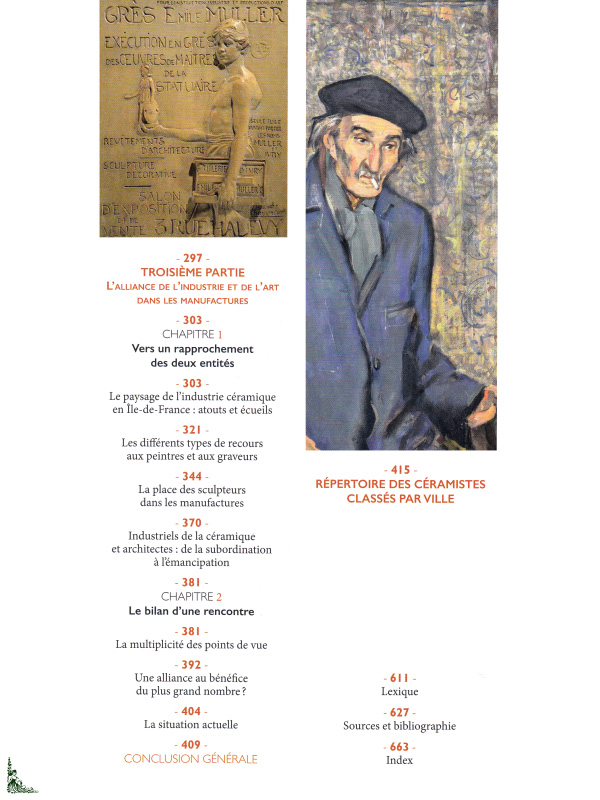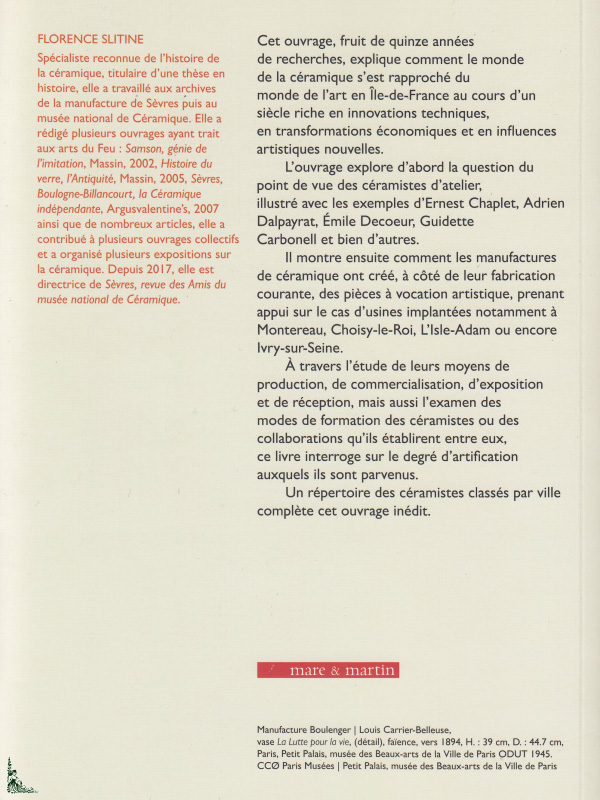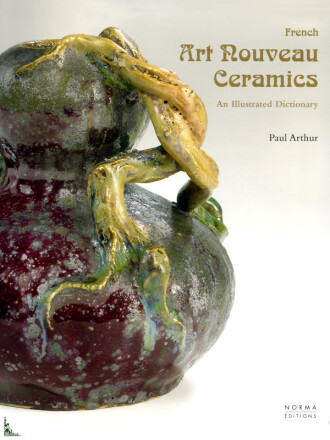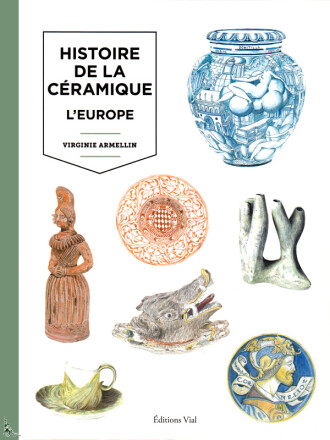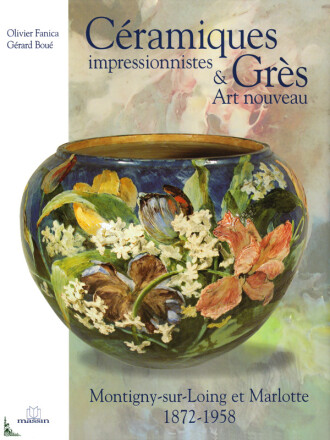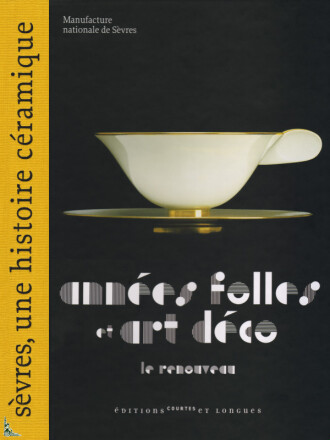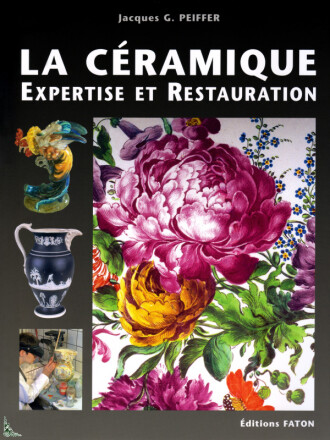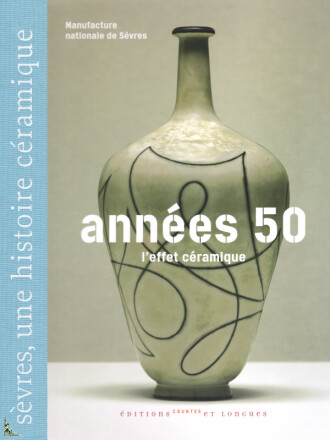La céramique d'Art en Ile de France (1850-1950), Ateliers et manufactures privées
- Prix :
- 56.00 €
- Frais de port :
- 0.01 € vers Livré entre le jeu. 26 février et le lun. 2 mars
Détails de l'ouvrage
| Auteur : | Florence Slitine |
| Éditeur : | Mare & Martin (2024) |
| Reliure : | Relié (668 pages couleurs) 17 cm x 25 cm |
| Langue : | Français |
| ISBN : | 978-2-36222-091-3 |
| EAN : | 9782362220913 |
Description
La céramique d'Art en Ile de France (1850-1950), Ateliers et manufactures privées, de F. Stitine, Ed. Mare Martin, 17 cm x 25 cm, broché avec 668 pages couleurs
Ce livre de 668 pages superbement illustré présente La céramique d'Art en Ile de France (1850-1950), ateliers et manufactures privées.
Cet ouvrage, fruit de quinze années de recherches, explique comment le monde de la céramique s'est rapproché du monde de l'art en Île-de-France au cours d'un siècle riche en innovations techniques, en transformations économiques et en influences artistiques nouvelles.
L'ouvrage explore d'abord la question du point de vue des céramistes d'atelier, illustré avec les exemples d' Ernest Chaplet, Adrien Dalpayrat, Émile Decoeur, Guidette Carbonell et bien d'autres.
Il montre ensuite comment les manufactures de céramique ont créé, à côté de leur fabrication courante, des pièces à vocation artistique, prenant appui sur le cas d'usines implantées notamment à Montereau, Choisy-le-Roi, L'Isle-Adam ou encore Ivry-sur-Seine.
À travers l'étude de leurs moyens de production, de commercialisation, d'exposition et de réception, mais aussi l'examen des modes de formation des céramistes ou des collaborations qu'ils établirent entre eux, ce livre interroge sur le degré d'artification auxquels ils sont parvenus.
Un répertoire des céramistes classés par ville complète cet ouvrage inédit.
Principaux chapitres de l'ouvrage :
- INTRODUCTION
- PREMIÈRE PARTIE Les mondes de la céramique en Île de France : acteurs et institutions
- DEUXIÈME PARTIE La céramique d'atelier : une production en voie d'artification ?
- TROISIÈME PARTIE L'alliance de l'industrie et de l'art dans les manufactures
- RÉPERTOIRE DES CÉRAMISTES CLASSÉS PAR VILLE
- Index
Les textes en Français sont de Florence Slitine.


